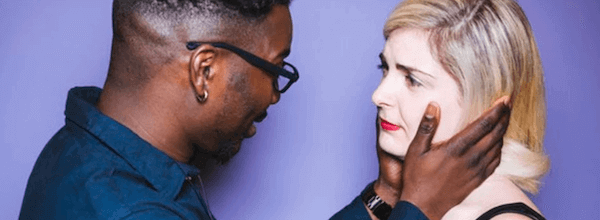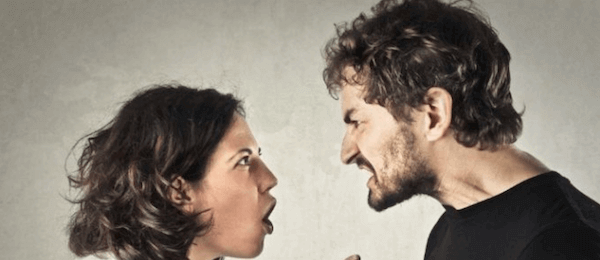Most of the time, we hear about domestic violence and react with agitation. We quickly say that someone didn’t deserve such cruel treatment from their partner and that they could do better.
The truth is, many people don’t realize they’re in unhealthy relationships until it’s too late. It’s easy to recognize an unhealthy relationship if you’re not in one. However, those in unhealthy relationships often have a hard time realizing they’re dancing with the devil.
Some people stay in unhealthy relationships, hoping their partner will change for the better. The reality is that no matter how many second chances you give your boyfriend or girlfriend, they’ll never change if toxicity is deeply rooted in their DNA.
Toxic or unhealthy relationships can quickly escalate to verbal or physical violence. While no one wishes to be in an unhealthy relationship, many people in such situations suffer because they ignore the warning signs.
Warnings from friends and relatives fall on deaf ears, and before they know it, they become victims of domestic abuse. To avoid being in an unhealthy relationship, you should know the signs of abusive partners. Always be on the lookout and avoid giving too many second chances before the damage becomes irreparable.
You may be putting a lot of effort into your relationship, but the question is, are you busy filling a leaking bucket?
Let’s find out. Below are ten signs of an unhealthy relationship.
1. Jealousy

Toxic relationships don’t always involve emotional or physical abuse. Although these are red flags, some traits, such as jealousy, are important to watch out for.
Jealousy has been the downfall of kings and prominent people. It has ended precious lives and has been among the leading causes of mental breakdowns.
A jealous partner is like a ticking time bomb waiting to explode. Jealous partners can go to extreme lengths to wreck your life.
Don’t fall victim to the popular myth that a jealous partner is a caring partner. This is far from the truth. Jealous partners are obsessive. They want to control who you interact with and are suspicious of your every move.
They always want to know where you are, who you are with; they read your texts or emails. Jealous partners are overly possessive. They constantly feel threatened and lash out when you get defensive and tell them that someone is just a friend or colleague.
They always accuse you of cheating or flirting when that’s not the case. Some even go as far as stalking you.
If you notice that your partner has these traits, it’s wise to distance yourself from them before it’s too late.
2. Lack of Communication

Good and effective communication in a relationship is like a diamond covalent bond. Your relationship cannot be broken when you frequently communicate with each other. Communication is the backbone of a healthy relationship.
Good communication isn’t just about the regular “hellos,” “good mornings,” or “how are you holding up.” Proper communication in a healthy relationship involves understanding each other’s feelings, knowing your partner’s fears and insecurities. It requires constant assurance that you are there for your partner through thick and thin.
A loving and caring partner will make an extra effort to discover what is bothering you and how you can fix your problem. If you find that your partner is distant and not as communicative as they used to be, or if you are the one putting in all the effort to reach out, consider ending your relationship before you become emotionally drained.
3. Dishonesty

Openness and honesty are essential in a relationship. Consistently being secretive and lying are red flags, signaling that your partner may be hiding something from you.
Trust can quickly erode when a partner discovers that you’ve been concealing things from them, even if you believe those things are insignificant. Relationships in which partners withhold information from each other rarely thrive.
Your relationship will inevitably suffer if you don’t openly share significant aspects of your life. If you struggle to disclose something to your partner or sense that they are dishonest or unable to be transparent, it might be time to reevaluate the relationship and consider moving forward in your life.
4. Two-Faced

Two-faced individuals are often more dangerous than outright enemies. They may appear to be caring partners, while secretly speaking ill of you behind your back. A two-faced partner can betray or turn against you easily.
If you notice that your partner says something and then quickly denies their words, you might be in a toxic or unhealthy relationship.
Those who act one way when alone with you and then change their behavior around others are like a double-edged sword that you should be cautious of.
5. Unforgiving

Healthy relationships involve letting go of past mistakes and moving forward together. Unhealthy relationships, on the other hand, include partners who continually bring up past issues even after you’ve sincerely apologized for your mistakes.
Past misdeeds shouldn’t be mentioned unless you repeatedly make the same mistakes. If you acknowledge your wrongdoing and ask for forgiveness, only to be met with rejection, it’s time to move on with your life.
Being in a relationship with an unforgiving partner can be mentally draining, and staying in such a relationship can negatively impact your well-being.
6. Sabotage

In unhealthy relationships, especially among couples or partners who live together, sabotage can be a common issue. Sabotage by a toxic partner involves any actions taken to undermine your success, achievements, or reputation.
Examples of sabotage may include your partner deflating your tires to make you late for work, gossiping about you behind your back, or threatening to expose your private matters on social media. It’s essential to avoid partners who repeatedly engage in such behavior, as they can be extremely harmful to your well-being.
7. Not Owning Up to Mistakes

Unhealthy relationships often involve partners who refuse to accept responsibility for their mistakes. They are quick to deny any wrongdoing and might insist they are blameless, even when caught in the act.
In contrast, reasonable partners admit their mistakes and seek ways to make amends. They genuinely apologize when they have wronged you and strive not to repeat the same mistake intentionally.
If your partner consistently blames you or others for their mistakes, it’s a sign that it may be time to move on. In healthy relationships, sincere partners take responsibility for their actions without someone having to push them to do so.
8. Public Criticism

If your partner constantly criticizes you in front of people who have no connection to the issue, it’s a sign that they don’t value and respect you.
We all make mistakes, as it’s just part of being human. However, if your partner truly loves, values, and respects you, they will discuss any problems with you privately, behind closed doors. Sharing each other’s mistakes in public is a sign of an unhealthy relationship.
9. Verbal and Physical Abuse

Drawing the line in an unhealthy relationship should begin with verbal and physical abuse. Verbal abuse is a form of emotional abuse that often leads to physical abuse if it is tolerated. Although words may not break bones, the effects of verbal abuse are just as harmful.
A verbally abusive partner will often try to manipulate and control you through degradation and shaming. Remember, never tolerate verbal abuse in order to feel worthy or loved. Similarly, threatening or using physical violence is a clear sign of an irreparable relationship.
Physical abuse can take many forms, such as shoving, punching, slapping, hitting, kicking, smacking, or forced sexual activity. It is essential to never tolerate physical abuse in any form. Giving a physically abusive partner a second chance only gives them more control over you.
Verbal and physical abuse are the most obvious signs of an unhealthy relationship. Once physical abuse occurs, the relationship cannot grow or thrive.
10. Threatening to Leave

In a healthy relationship, there should be a balance where both partners feel secure and valued. However, in an unhealthy relationship, one partner may use threats of leaving as a means of manipulation or control.
Living in constant fear that your partner may walk away and leave you in the cold creates a sense of insecurity, and there is no balance in such a relationship.
If your partner continually threatens to leave you, it’s important to take control of the situation and walk away. Remember that a healthy relationship is built on trust, respect, and mutual understanding, and it’s not worth sacrificing your mental and emotional well-being for a partner who constantly uses threats as a means of control.
Conclusion
Understanding the behavior of your partner is crucial in determining whether you are in an unhealthy relationship. These signs may link up in chains and gradually accumulate, eventually affecting your everyday life and performance.
It’s important to always trust your instincts and follow your gut because they are rarely wrong. If you notice these signs in your relationship, ask yourself what you want from it. Although ending a relationship can be difficult and heartbreaking, your happiness is what ultimately matters.
Walking away from an unhealthy relationship may be challenging, but you will eventually thank yourself for moving on with your life. Chances are high that you will find true happiness in the future.

